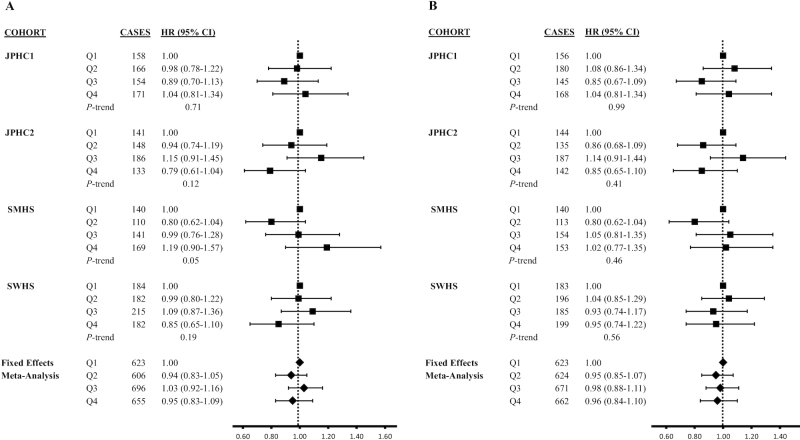FIGURE 1.
Association between dietary soy isoflavone (mg/d; A) and soy protein (g/d; B) intake and colorectal cancer risk by study cohorts and fixed-effects meta-analysis. P-heterogeneity for soy isoflavone intake was 0.60, 0.45, and 0.14, for Q2, Q3, and Q4, respectively. P-heterogeneity for soy protein intake was 0.22, 0.33, and 0.71, for Q2, Q3, and Q4, respectively. The cohort- and sex-specific quartiles were used (see Supplemental Table 2 for specific cutpoint values for each cohort). Complete case analyses (based on total sample size of n = 186,755 with 2589 colorectal cancer cases) were adjusted for age, total energy, sex, smoking status, alcohol consumption, physical activity, obesity status, family history of colorectal cancer, intake of red meat, vegetable intake, folate intake, and menopausal status in women. JPHC1, Japan Public Health Center–based Prospective Study Cohort 1; JPHC2, Japan Public Health Center–based Prospective Study Cohort 2; Q, quartile; SWHS, Shanghai Women's Health Study.

